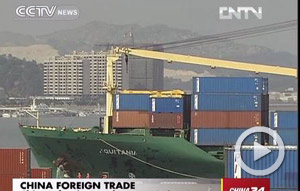Obama rejects G20 pressure to abandon Syria plan
Updated: 2013-09-07 07:24
(Agencies)
|
||||||||
 |
|
A burning effigy of US President Barack Obama is seen during a protest by a students' national union against possible US military action in Syria, in front of the U.S. embassy in Brasilia September 6, 2013.[Photo/Agencies] |
HUMAN RIGHTS TALKS
The dispute over Syria has deepened strains in US-Russian ties, already difficult because of differences over human rights and Moscow's hosting of Edward Snowden, a spy agency contractor who revealed details of US surveillance programs. Putin said Obama had not requested Snowden's extradition on Friday, adding that it would be impossible anyway.
Obama later met rights activists, including gay rights campaigners, to show support for civil society in Russia, where critics say Putin has clamped down on dissent in his third term.
But some invitees declined to attend, citing what they said were repeated changes in the timing of the meeting. One added her voice to warnings against a military strike on Syria.
The G20 achieved unprecedented cooperation between developed and emerging nations to stave off economic collapse during the 2009 financial crisis, but the harmony has since waned.
Despite their differences, the leaders agreed on a summit declaration that the global economy is improving although it is too early to declare an end to crisis.
The leaders stuck closely to a statement issued by G20 finance ministers in July that demanded monetary policy changes must be "carefully calibrated and clearly communicated".
"Our most urgent need is to increase the momentum of the global recovery, generate higher growth and better jobs, while strengthening the foundations for long-term growth and avoiding policies that could cause the recovery to falter or promote growth at other countries' expense," the leaders said.
Member states are at odds as the US recovery gains pace, Europe lags, and developing economies worry about the impact of the Federal Reserve's plans to stop a bond-buying program that has helped stimulate the US economy.
The BRICS emerging economies - Russia, China, India, South Africa and Brazil - have agreed to commit $100 billion to a currency reserve pool that could help defend against a balance of payments crisis, but the mechanism will take time to set up.
- Putin vows to help Syria in case of military attack
- China backs UN effort on Syria
- China urges calm, restraint on Syria issue
- Russia sends missile cruiser to Mediterranean
- US divided on possible Syria strike
- Syria strike plan faces tough sell in US Congress
- US Senate panel approves resolution on Syria
- Putin outlines stances on Syria, relations with US
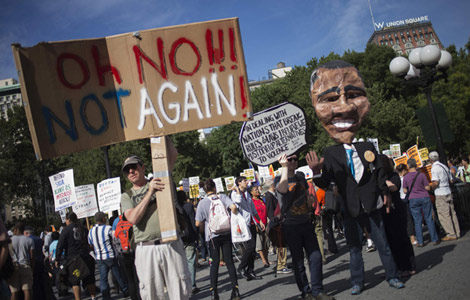
 US: Proven link of Assad to gas attack lacking
US: Proven link of Assad to gas attack lacking
 Serena Williams repeats as US Open champion
Serena Williams repeats as US Open champion
 Panda 'Bai Yun' celebrates 22nd birthday in US
Panda 'Bai Yun' celebrates 22nd birthday in US
 Exports expand in Aug amid signs of recovery
Exports expand in Aug amid signs of recovery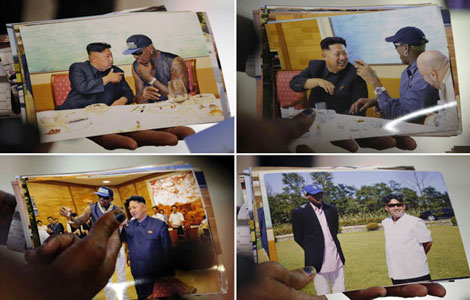
 Rodman back from DPRK without jailed American
Rodman back from DPRK without jailed American
 National Games: Pictures of the day
National Games: Pictures of the day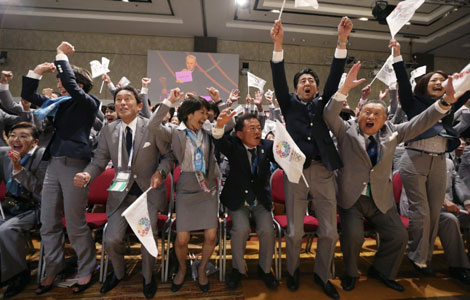
 Abe speech helps secure 2020 Games for Tokyo
Abe speech helps secure 2020 Games for Tokyo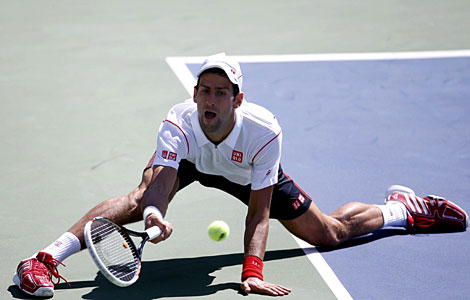
 Djokovic, Nadal set up blockbuster US Open final
Djokovic, Nadal set up blockbuster US Open final
Most Viewed
Editor's Picks

|

|

|

|

|

|
Today's Top News
DPRK leader has a baby daughter: Rodman
US: Proven link of Assad to gas attack lacking
Li: China pursues sustainable growth
Chinese president arrives in Uzbekistan for visit
China's top admiral visits US
China's inflation slows to 2.6%
Guangzhou to end labor camps
Liu Zhijun associate charged
US Weekly

|

|
